North Central Health District County Health Departments Offer Free HIV Tests for World AIDS Day
Posted November 24, 2017 by Michael Hokanson
Know Your Status by Getting Tested and Protecting Yourself
Dec. 1 marks the 29th annual World AIDS Day, which began as an effort to increase awareness. The day has evolved over the years to expand beyond awareness by celebrating the advancements in prevention and treatment, support individuals and families affected by the disease and honor those lost to AIDS. In recognition of World AIDS Day, all 13 North Central Health District (NCHD) county health departments will offer free HIV testing.
Anyone interested in learning their status can visit their local health department and receive free testing without an appointment. Each health department will be offering testing during these hours on Dec. 1, unless otherwise stated:
- Baldwin County Health Department: 8 a.m. – 4:30 p.m.
- Crawford County Health Department: 8 a.m. – 4:30 p.m.
- Hancock County Health Department: 8 a.m. – 4 p.m.
- Houston County Health Department: 8 a.m. – 4:30 p.m.
- Jasper County Health Department: 8 a.m. – 1:30 p.m.
- Jones County Health Department: Thursday, Nov. 30, 7:30 a.m. – 6 p.m.
- Macon-Bibb County Health Department: 8 a.m. – 4:30 p.m.
- Monroe County Health Department: 8 a.m. – 12 p.m.
- Peach County Health Department: 8 a.m. – 4:30 p.m.
- Putnam County Health Department: 8 a.m. – 12 p.m.
- Twiggs County Health Department: 8 a.m. – 4:30 p.m.
- Washington County Health Department: 8 a.m. – 4:30 p.m.
- Wilkinson County Health Department: 8 a.m. – 12 p.m.
HIV, or human immunodeficiency virus, is a virus spread by the exchange of certain body fluids. HIV can be transmitted through sexual contact, by sharing needles used to inject drugs and by a mother to her child during pregnancy, birth or breastfeeding. Once the virus enters a person, it attacks the immune system, reducing the body’s ability to fight disease and other infections. Left untreated, HIV can continue to weaken the immune system and lead to acquired immunodeficiency syndrome (AIDS), the final stage of HIV.
Though there is no cure for HIV, a person can reduce the risk of transmission in a number of ways. Using condoms properly every time during sexual contact and reducing the number of sex partners can reduce the chance of infection. A person who avoids injecting drugs has a lower risk than a person who does. People who inject drugs can reduce the risk of HIV infection by not sharing needles. If a person is at very high risk, he or she should talk to their healthcare provider about pre-exposure prophylaxis (PrEP) which can help prevent the transmission of HIV. Everyone at risk of HIV infection is advised to get tested regularly. Those with a higher risk should get tested more often.
NCHD is committed to fighting the spread of HIV and other sexually transmitted diseases (STD) in the community. In addition to providing HIV and STD testing, each of NCHD’s county health departments offers STD treatment, counseling and education. All services are completely confidential and administered by our expert team of licensed nurses and counselors. For more information on NCHD’s HIV and STD services, visit NCHD52.org/STD.
For more information on HIV, visit cdc.gov/hiv.
Follow us on Facebook, Twitter and Instagram to receive news, emergency messages and health information!


 Contact Us
Contact Us Locations
Locations Job Openings at North Central Health District
Job Openings at North Central Health District Internships
Internships Board of Health
Board of Health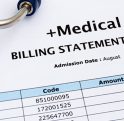 Cost and Insurance
Cost and Insurance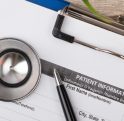 Privacy Policy
Privacy Policy Teens & Adults
Teens & Adults For Children
For Children Other Programs
Other Programs County Environmental Health Offices
County Environmental Health Offices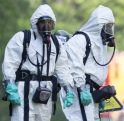 Chemical Hazards
Chemical Hazards Tourist Accommodations
Tourist Accommodations Food Service
Food Service Rabies Control
Rabies Control Lead Poisoning Prevention
Lead Poisoning Prevention Body Art
Body Art Land Use
Land Use Swimming Pool Program
Swimming Pool Program Water Testing for Private Wells
Water Testing for Private Wells Environmental Health Complaints
Environmental Health Complaints Georgia Food Recall Alerts
Georgia Food Recall Alerts Personal & Family Preparedness
Personal & Family Preparedness Emergency Preparedness for Functional & Access Needs
Emergency Preparedness for Functional & Access Needs Severe Weather Preparedness
Severe Weather Preparedness Emergency Preparedness Training
Emergency Preparedness Training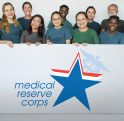 Medical Reserve Corps
Medical Reserve Corps Regional Healthcare Coalitions
Regional Healthcare Coalitions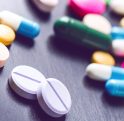 Strategic National Stockpile/Medical Countermeasures
Strategic National Stockpile/Medical Countermeasures